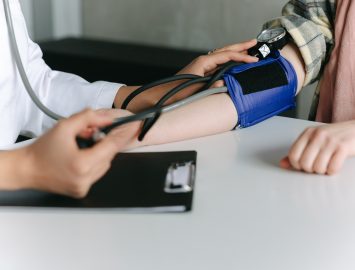Do you know how opioids shape the landscape of healthcare? Opioids are powerful pain-relieving medications and are pivotal tools in managing pain for numerous individuals. However, what happens when they intersect with the complexities of medical malpractice? So you should know both opioids and medical malpractice.
Before we dig a little deeper, we will discuss what opioids are. Then we’ll break it down into bite-sized pieces, covering everything about how opioids work to the legal side of medical slip-ups.
We’ll also walk through signs of trouble, what to do if you suspect something’s off, and how legal champs like Thomas & Wan, LLP, are making a difference in opioid-related cases. So let’s get started!
What Are Opioids?
Let’s start with “What are opioids?” Opioids, commonly prescribed for pain management, belong to a category of potent medications. They can be derived from the opium poppy plant or synthesized artificially. They work by interacting with the nervous system to reduce the intensity of pain signals reaching the brain.
While effective in managing pain, these substances carry a risk of misuse and dependence. Thus, it’s crucial to understand their impact on the body and the potential dangers associated with their use.
Types of Opioids in Medical Practice
- Prescription Opioids
Prescribed by doctors to manage severe pain, these medications include oxycodone and hydrocodone. Following the doctor’s instructions is crucial to avoid potential risks.
- Synthetic Opioids
These are created in a laboratory; synthetic opioids like fentanyl are exceptionally potent and reserved for intense pain, demanding careful administration under strict medical supervision.
- Illegal Opioids
They include substances like heroin and pose severe risks due to their unregulated nature. The use of these opioids is not medically supervised and can lead to severe health consequences.
Medical Malpractice Defined
Medical malpractice occurs when healthcare providers, like doctors or nurses, don’t meet established medical standards, leading to patient harm. It’s more than simple errors—a departure from accepted norms.
The scope is broad, covering scenarios such as misdiagnosis and medication mistakes. In opioid contexts, malpractice might involve over-prescribing, poor monitoring, or not fully explaining risks. Recognizing this helps ensure healthcare providers follow the proper norms for patient safety.
Common Scenarios Involving Medical Malpractice with Opioids
- Over-Prescription
It occurs when healthcare providers prescribe opioids in excess of what is medically necessary, leading to potential patient harm, addiction, or overdose.
- Failure to Monitor
Inadequate monitoring of a patient’s response to opioids can result in overlooked signs of complications or overdose, contributing to medical malpractice.
- Lack of Informed Consent
Patients have the right to be informed about the potential risks and side effects of opioid treatment. A failure to provide comprehensive information constitutes medical malpractice.
Legal Implications
Legal considerations in the context of opioids and medical malpractice are integral components of the healthcare landscape. This section provides an insightful exploration of the legal framework, emphasizing laws governing opioid prescriptions and delineating patient rights in instances of medical malpractice.
Laws Surrounding Opioid Prescriptions
Healthcare providers operate within a nuanced legal landscape that rigorously regulates the prescription, administration, and monitoring of opioid medications. It includes guidelines on prescribing practices, dosage limitations, and meticulous record-keeping requirements.
The understanding of these legal obligations is paramount to ensuring the proper prescription and administration of opioids, aligning with established standards,, and minimizing the potential for medical malpractice.
Patient Rights in Cases of Medical Malpractice
When it comes to medical malpractice tied to opioids, patients have crucial legal rights shaping their healthcare journey. These include the right to understand the risks through informed consent fully. Patients also deserve care aligned with medical principles.
If these rights are overlooked, patients can legally seek remedies. Knowing these rights empowers patients to actively participate in healthcare choices and take action if providers deviate from accepted standards. Understanding the legal side of opioid-related medical malpractice involves grasping healthcare providers’ responsibilities and patients’ inherent rights.
Signs and Symptoms of Opioid-Related Complications
Understanding the nuanced signs and symptoms of opioid-related complications is vital for prompt intervention. Let’s get a detailed exploration:
Recognizing Opioid Overdose Symptoms
- Extreme drowsiness
Profound lethargy or an overwhelming urge to sleep is often a precursor to respiratory distress.
- Pinpoint pupils
These are the constricted pupils, resembling the size of a pinpoint, indicative of central nervous system depression.
- Slowed or irregular breathing
A notable reduction in respiratory rate or irregular breathing patterns is a critical sign of distress.
- Loss of consciousness
Inability to stay awake or aware, signaling a severe medical emergency requiring immediate intervention.
Immediate medical assistance is crucial when these indicators manifest to prevent fatal outcomes.
Long-Term Health Effects of Improper Opioid Use
- Increased tolerance
It’s the body’s diminished response to the same dose, necessitating higher amounts for the desired effect, a potential red flag for misuse.
- Persistent craving
A strong, often uncontrollable desire or compulsion to use opioids is characteristic of addiction.
- Neglect of other responsibilities
Prioritizing opioid use over daily tasks and obligations signals a concerning shift in behavior that may indicate dependency.
Beyond acute overdose, chronic opioid misuse can lead to physical dependence, addiction, and adverse effects on mental and physical well-being.
Reporting and Seeking Help
In the realm of opioid-related complications, understanding the imperative nature of reporting and seeking help is paramount.
Reporting Suspected Medical Malpractice
Recognizing signs of medical malpractice related to opioids is crucial. It includes,
- Over-prescription
- Inadequate Monitoring
- Lack of Informed Consent
When suspecting medical malpractice, promptly report the situation to relevant healthcare authorities. You should clearly articulate observed signs and symptoms, providing detailed information for a thorough assessment.
Legal Resources for Victims
In instances where individuals have been adversely affected by opioid-related complications, accessing legal resources is essential. Victims of medical malpractice or those facing legal ramifications due to opioid misuse should explore available legal avenues. It may include consultation with legal professionals specializing in medical malpractice or contacting organizations that provide legal support for victims.
Thomas & Wan, LLP: Defenders of Justice in the Medical Arena
Thomas & Wan, LLP stands as a formidable force in the pursuit of justice, particularly in matters of medical malpractice and wrongful death, with a specific focus on cases involving opioid medication misuse or overdosing. It was established to champion victims’ rights; thus, this legal powerhouse has successfully resolved numerous multi-million dollar cases nationwide.
One of the primary focuses of Thomas & Wan, LLP is handling cases related to opioid medication misuse. Having a deep grasp of the challenges in these cases, the legal team skillfully navigates the details, ensuring accountability for healthcare providers.
With over 30 years of service, they’ve become strong advocates for medical malpractice victims. If you or a family member faced opioid misuse, Thomas & Wan, LLP is here to help. Dedicated to offering support and legal representation, the firm stands by those affected by medical malpractice.
With a compassionate approach and a relentless pursuit of justice, Thomas & Wan, LLP stands as a beacon for individuals seeking accountability for opioid-related harm. So contact us today to start your journey toward a fair and empowered resolution.




